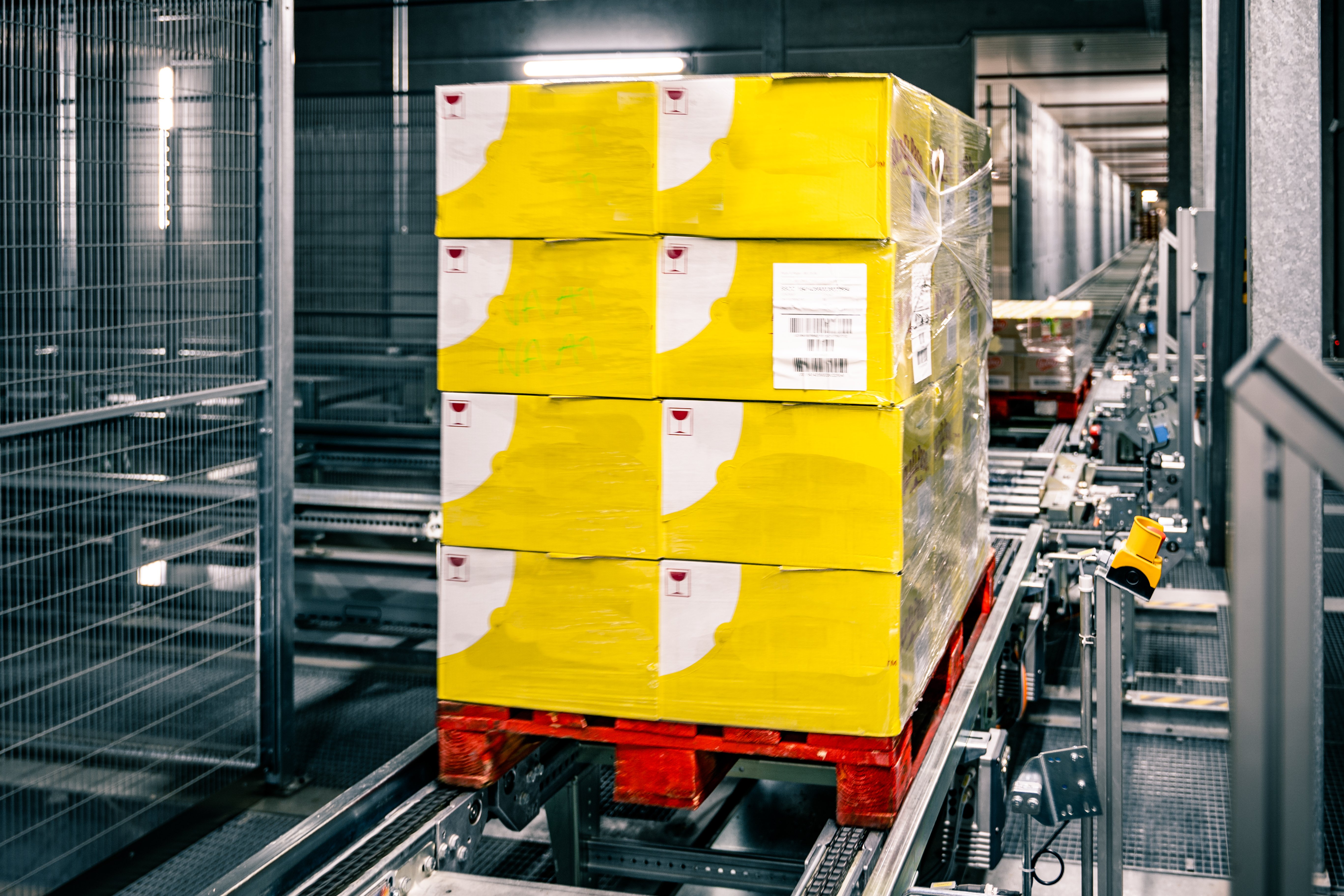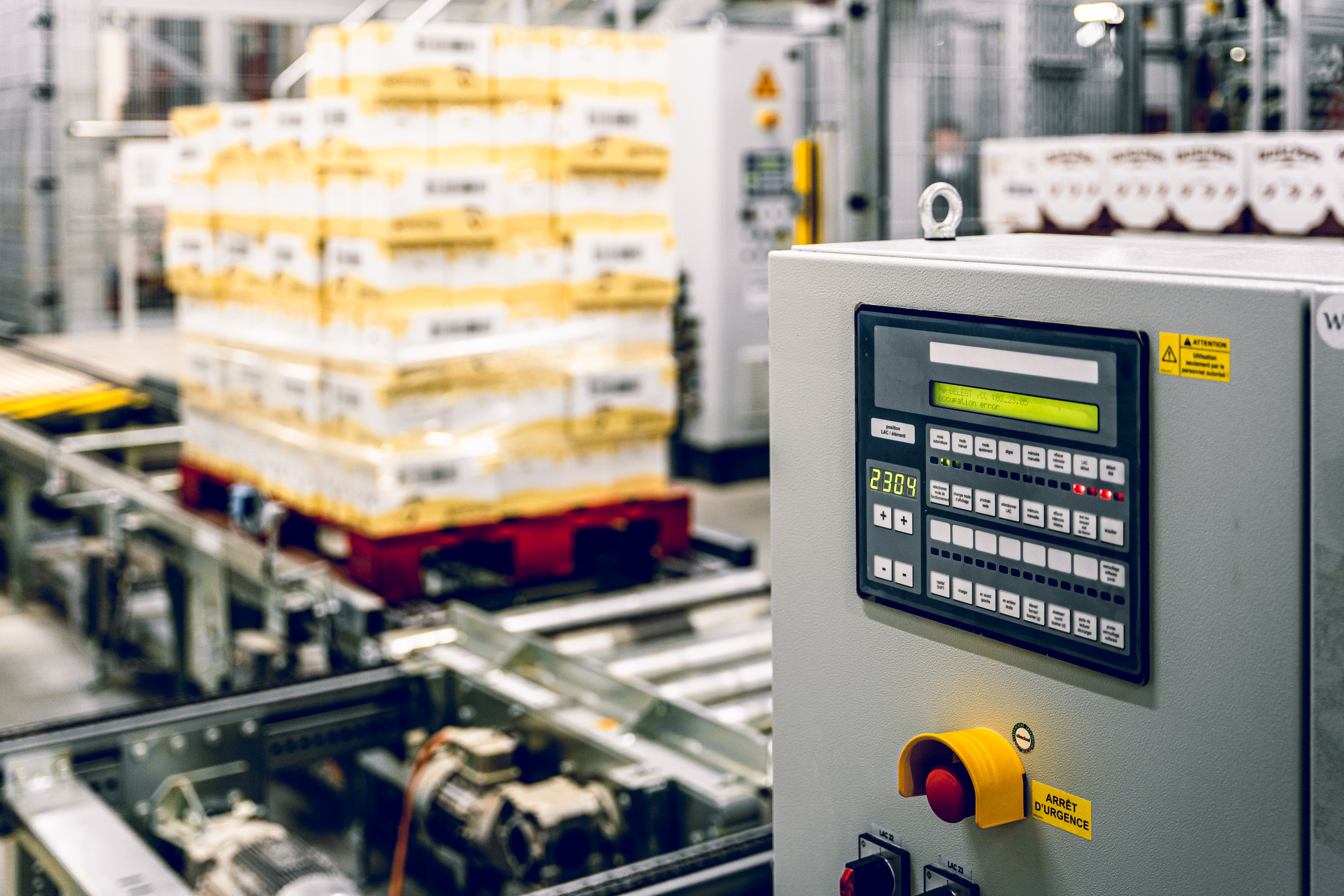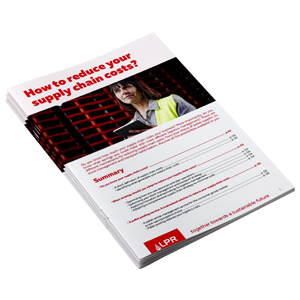Created in the 1940s, the pallet is still the most widely used means of transporting goods in the world. Standardised, it allows goods to be stored more efficiently and moved quickly.
Available in different sizes and in different materials, the pallet is adapted depending on the type of transport, the type of goods transported or the way in which goods are stored.
Given the complexity of logistics flows, it has become necessary to find the best way to organise pallets for use across Europe.
As a result, companies traditionally have chosen one of two ways to do this, with some companies chosing to build their own pool of pallets and self manage, and others have selected to use an outsourced pooling system.
Pallet pooling is the smarter and more environmentally friendly solution. In this article, we cover what pallet pooling management is, its advantages and how it works for the transport of your goods - and for your supply chain.
Quick Navigation:
II. The benefits of pallet pooling
I. How pallet pooling works
1. What is pallet pooling?
Pallet pooling is a pallet rental and management system based on the principle of the circular economy. Using this system, you can completely outsource all management of pallets. It also means that you have access to quality pallets, where, and when you need them.
With pallet pooling, pallets are no longer just a product that you buy, but a service from which the company benefits: this is sometimes called ‘Pallets as a service’.
The company places an order and receives exactly the quantity of pallets ordered. This removes any concern about pallet management, as everything is taken care of by the pallet rental provider.
In fact, the company that rents the pallets is responsible for the quality of the pallets it provides, as well as their maintenance and their timely delivery.
The rental of pallets makes it possible to reduce logistics costs, thanks to the pooling of pallets between different customers who are part of the same rental circuit: producers, distributors, transporters, etc.
The pallet formats available for hire are standardised and correspond to all supply chain sectors and their automated systems.
By outsourcing the management of your pallets to a specialised company, you delegate the entire process - from order to collection after use, as well as any inspection and repair required before they can be reused.
Pallet pooling allows you to optimise your pallet management processes, while having the assurance of always having quality pallets available. This allows you to focus on what really matters: your core business.
2. The pallet rental cycle
Pallet pooling is based on the main principles of the circular economy and therefore operates in the form of a closed circuit.
The first thing to consider is choosing which pallets are right for your business and supply chain. Your geographical location, or where you ship your goods, will play a big part in which format you require. The standard formats used in the United Kingdom, the European Union, and the United States can differ. Therefore it is important to ensure that you choose the pallets best suited to your supply chain. Your pallet pooling company will be able to provide guidance here.
After placing your pallet order, the pallet pooling company will deliver them to your production sites.
Then it's over to you. Load your pallets with your goods and send them to your distribution locations.
Once the pallets have been shipped, your pallet pooling partner should then collect them directly from your distribution locations. They will then send them to their service centres where they are inspected, and where necessary, repaired and reintroduced into the rental circuit so that they can be used again.
3. Services to manage your pool of rental pallets
As a pallet pooling company, LPR - La Palette Rouge offers several services to manage your pallets in real time.
Thanks to its MyLPR application, you can:
-
Order your pallets quickly and simply. You place your order, and we deliver them to you.
-
Control your incoming and outgoing flows of pallets, allowing you to see your pallet stock in real-time.
-
Inform us of your deliveries of pallets to your distribution locations, so we can recover them, and put them back into the rental circuit.
-
Follow your pallet orders, allowing you to be in control of when a delivery is scheduled.
Technological advances, including the use of connected objects and RFID technologies, provide better traceability, greater precision and therefore efficiency. LPR chose the Shippeo solution, which allows it to track the delivery of its goods in real-time.

II. The benefits of pallet pooling
Renting pallets has many advantages, when compared to buying your own pool. These include economic advantages, time advantages, and above all, logistical advantages.
Pallet pooling offers economic savings. Indeed, the purchase of pallets is considered to be Capital Expenditure and is, therefore, an investment (a capital asset), as the rental of pallets is an Operating Expense, whereas the costs are inherent in the activity itself. The company only pays to use the pallets and not to own them. As a result, it optimises cash flow, and avoids administrative management and maintenance costs.
Finally, pallet pooling means it is possible to take advantage of reduced logistics costs:
-
It removes the cost of repairing and destroying pallets. These costs are higher when you own a pool of pallets. In the case of pallet rental, the rental company takes care of these costs.
-
It avoid hidden costs related to “empty” transport miles: when a haulier delivers your pallets to you, the return trip may mean that the truck is empty.
-
It avoid also hidden costs related to the maintenance of the pallets, their administrative management and their handling or storage.
1. Outsourcing the management of pallets
Outsourcing the management of a pallets is an important advantage of pallet pooling.
Using this system, you do not need to maintain your own pool of pallets, buy them back, store them, have them repaired or destroy them. You receive the pallets you need, ready to use, you use them and then the rental company collects them.
In the purchase of your own pallet pool, you will need to spend time finding the right supplier – which can be quite time-consuming. You will need a reliable supplier with good quality products and a large enough stock. This represents a significant investment of time and money.
Outsourcing the management of pallets saves time, money and removes the risk of buying your own pallets.
2. Pallet suppliers closer to your supply chain
Pallet pooling companies have warehouses to store and repair pallets all over Europe. This is necessary to be able to ensure delivery to all customers on time, and to collect, repair and redistribute the pallets.
LPR - La Palette Rouge has more than 28,000 collection points and 135 service centres across Europe. This allows us to reduce the miles travelled, be more efficient, and to be closer to our customers.
This close proximity represents a double advantage, since it also allows us to be closer to our customers in the relationship that we establish with them too.
3. A more responsible supply chain
Among the many advantages of pallet pooling, we should also include that it helps to make your supply chain more responsible.
Pallet pooling significantly increases the lifespan of a pallet, which can reach up to about 5 years. It also reduces the excessive use of raw materials. Each pooled pallet is collected, sorted and repaired throughout its life cycle. Reusable pallets represent twice the annual production of new pallets. In addition, when they are no longer repairable, they are recycled to make pellets which are then used for heating and pet bedding.
Additionally, pallet pooling companies use their many warehouses and pool transport resources to recover pallets. This reduces miles, and therefore, CO2 emissions.
Finally, you can also rent PEFC-certified wooden pallets from suppliers like LPR - La Palette Rouge. These certified pallets come from wood taken from sustainably managed forests. LPR's PEFC-certified wooden pallets are automation ready. One more step towards a more responsible supply chain.
Conclusion
In conclusion, we can confidently say that renting pallets has many advantages, when compared to buying your own pool: no capex outlay, lower logistics costs, no storage costs, a more ecological supply chain and outsourcing of management to name a few.
The pallet pooling model has never been more important, especially in the face of the important ecological and social issues of our world today.
Pallet pooling also allows industries to accelerate their ecological transition by having a more responsible supply chain.
If you would like to discuss your logistics issues with our business experts, you can contact them here. You can also access our other blog articles to learn more about the supply chain and pallet pooling.



